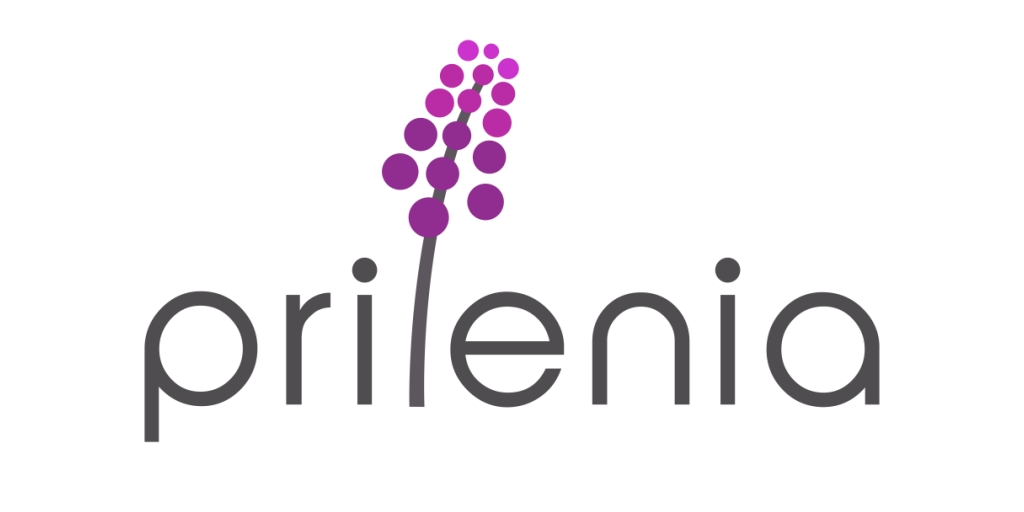-- Total deal size of approximately €500 million, including approximately €125 million in upfront and near-term milestones --
-- Ferrer to commercialize pridopidine in Europe and other select markets; Prilenia retains full commercialization and development rights to pridopidine in North America, Japan and Asia Pacific --
-- Co-development agreement in the territory supports further expansion of pridopidine in Huntington’s disease, amyotrophic lateral sclerosis and future indications --
-- Pridopidine for Huntington’s disease is currently under review by the European Medicines Agency (EMA) with a CHMP opinion expected in the second half of 2025 --
NAARDEN, Netherlands & WALTHAM, Mass.--(BUSINESS WIRE)--Prilenia Therapeutics B.V., a biopharmaceutical company driven by an unwavering commitment to scientific excellence and accelerating progress for people affected by Huntington’s disease (HD) and amyotrophic lateral sclerosis (ALS), today announced that it has entered into a collaboration and license agreement with Ferrer for the commercialization and further development of pridopidine in Europe and other select markets. Pridopidine is a potent and highly selective, orally administered sigma-1 receptor (S1R) agonist designed to regulate key neuroprotective mechanisms often impaired in neurodegenerative diseases such as HD and ALS.


Under the terms of the agreement, Prilenia will receive an upfront payment of approximately €80 million plus up to €45 million in near-term development, regulatory, and commercial milestones. The total deal is valued at up to approximately €500 million in upfront and total milestone payments. In addition, Prilenia will receive tiered double-digit royalties on net sales. Prilenia and Ferrer have agreed to jointly develop and fund the expansion of pridopidine in the territory for additional indications beyond HD. Prilenia will retain full rights to pridopidine in other major markets, including North America, Japan and Asia Pacific.
“We are proud to partner with Ferrer as we advance our shared mission to bring transformative therapies to people living with neurodegenerative diseases around the world,” said Dr. Michael R. Hayden, CEO of Prilenia. “Ferrer continues to grow their already significant presence throughout Europe and key international markets with particular focus on innovative products for rare diseases. By combining our unique strengths and shared commitment to these patient communities, we believe that this partnership has the potential to accelerate the delivery of pridopidine to the thousands of people who are waiting for a new treatment option as well as broaden its impact through additional indications in the future.”
“This agreement with Prilenia means we can continue making our purpose of using business to fight for social justice a reality, while focusing our pipeline development on diseases with high unmet medical need,” stated Mario Rovirosa, CEO of Ferrer. “The combination of strengths and capabilities of our two companies makes the future brighter for the patients suffering from such underserved conditions.”
“Securing rights to this molecule represents a pivotal step in our research strategy in the neurodegeneration arena,” said Oscar Pérez, Chief Scientific and Business Development Officer at Ferrer. “Given the mechanism of action of Pridopidine, we are fully committed to exploring its potential use across a range of indications.”
About Pridopidine
Pridopidine (45 mg twice daily) is a potent and highly selective, orally administered sigma-1 receptor (S1R) agonist designed to regulate key neuroprotective mechanisms often impaired in neurodegenerative diseases such as HD and ALS.i
In its extensive HD development program, pridopidine has demonstrated benefits across key features of the disease impacting quality of life for patients and families, including function, cognition and motor skills, measured by validated assessments and sustained for up to two years, with a favorable safety profile.
Prilenia has submitted a Marketing Authorization Application (MAA) to the European Medicines Agency (EMA), seeking regulatory approval of pridopidine for the treatment of HD. Our MAA has been accepted for review, and we expect an opinion from the Commission for Medicinal Human Products (CHMP) in the second half of 2025. This is the first submission seeking approval for a potential treatment that can impact disease progression in HD.
We also are in ongoing discussions with the U.S. Food and Drug Administration (FDA) to determine the next steps for pridopidine in HD in the U.S. If approved, Prilenia will continue to work expeditiously to make pridopidine available to HD patients.
For ALS, Prilenia and Ferrer plan to initiate a single, pivotal Phase 3 trial to evaluate pridopidine, seeking to confirm findings from the Phase 2 HEALEY ALS Platform Trial.
Prilenia holds Orphan Drug designation for pridopidine in HD and ALS in the U.S. and EU. In addition, pridopidine has received Fast Track designation by the FDA for the treatment of HD.
About Huntington’s Disease
Huntington’s disease (HD) is a rare, inherited, autosomal dominant, neurodegenerative disease that results in functional, motor, cognitive and behavioral symptoms. HD is caused by a mutation in the huntingtin gene, and each child of a parent with HD has a 50 percent chance of developing the disease.
HD affects approximately 100,000 people around the world with an additional 300,000 people at risk of developing HD.i,ii It is usually diagnosed between the ages of 30 and 50, although HD can occur at any age, including in children and young adults (known as juvenile onset HD or JHD). The disease progresses slowly over 15 to 20 years, with patients slowly losing their ability to work, communicate, manage day-to-day life and take care of themselves. This increasing disability leads to full reliance on a caregiver and, ultimately, death.
The only currently available treatments for HD focus on symptomatic relief and palliative care, with nothing impacting measures of overall progression.
About Amyotrophic Lateral Sclerosis (ALS)
ALS, also known as Lou Gehrig’s Disease or Motor Neuron Disease, is a chronic progressive neurodegenerative disease affecting approximately 350,000 people worldwide.
In people with ALS, motor neurons in the brain and spinal cord that convey messages to the muscles degenerate, affecting the brain’s ability to communicate with muscles. This leads to muscle wasting and progressive paralysis. Patients rapidly lose their ability to walk, speak, eat, and breathe, and become fully dependent on their caretakers. The average life span from diagnosis is 2 to 5 years.
The majority of ALS cases (~90%) are without a family history of the disease. About 10% of ALS cases are caused by inherited genetic mutations (often called familial ALS). One of the genes discovered to cause ALS encodes the sigma-1 receptor (S1R) protein. Mutations in this gene that result in complete loss of function of the S1R are associated with severe, juvenile ALS, while mutations resulting in partial, incomplete function of the S1R are associated with adult-onset ALS.
About Prilenia
Prilenia is a private biopharmaceutical company driven by an unwavering commitment to scientific excellence and accelerating progress for people affected by Huntington’s disease (HD) and amyotrophic lateral sclerosis (ALS). Our mission is simple but urgent: to develop and provide sustainable access to transformative medicines for people affected by devastating neurodegenerative diseases.
Prilenia operates across the United States, Canada, Europe and Israel. The company is incorporated in the Netherlands and backed by leading life sciences investors.
For more information, please visit www.prilenia.com and connect with us on LinkedIn or X (Twitter).
Prilenia Forward Looking Statements
Prilenia cautions readers that statements contained in this press release regarding matters that are not historical facts are forward-looking statements. These statements are based on the company's current beliefs and expectations. Such forward-looking statements include, but are not limited to, statements regarding: advancing development of and commercializing pridopidine, the potential benefits and value of pridopidine; and the potential benefits and outcome from this collaboration. Because forward-looking statements relate to the future, they are subject to inherent uncertainties, risks and changes in circumstances that may differ materially from those contemplated by the forward-looking statements, which are neither statements of historical fact nor guarantees or assurances of future performance. Important factors that could cause actual results to differ materially from those in the forward-looking statements include uncertainties in clinical development, regulatory approval and commercialization processes. Prilenia cautions readers not to place undue reliance on these forward-looking statements, which speak only as of the date hereof, and the company undertakes no obligation to update such statements to reflect events that occur or circumstances that arise after the date hereof.
©2025 Prilenia Therapeutics B.V.
For a copy of this release, visit Prilenia’s website at www.prilenia.com.
i Medina et al., Prevalence and Incidence of Huntington's Disease: An Updated Systematic Review and Meta-Analysis. Mov Disord. 2022 Dec;37(12):2327-2335.
ii Jiang, A., Handley, R. R., Lehnert, K., & Snell, R. G. (2023). From Pathogenesis to Therapeutics: A Review of 150 Years of Huntington’s Disease Research. International Journal of Molecular Sciences, 24(16), 13021. https://doi.org/10.3390/ijms241613021
Contacts
Prilenia Contact
Communications Team
info@prilenia.com




